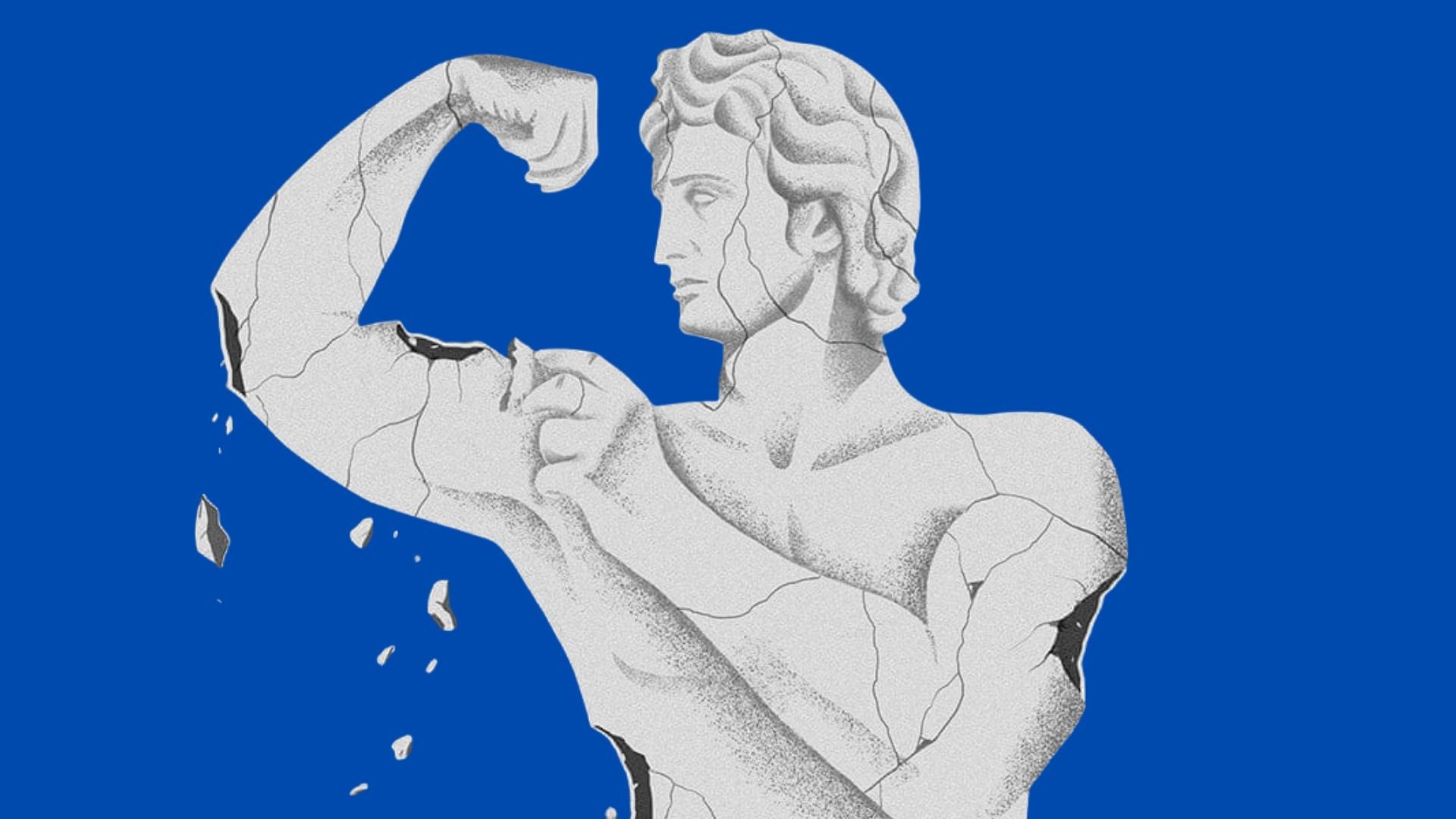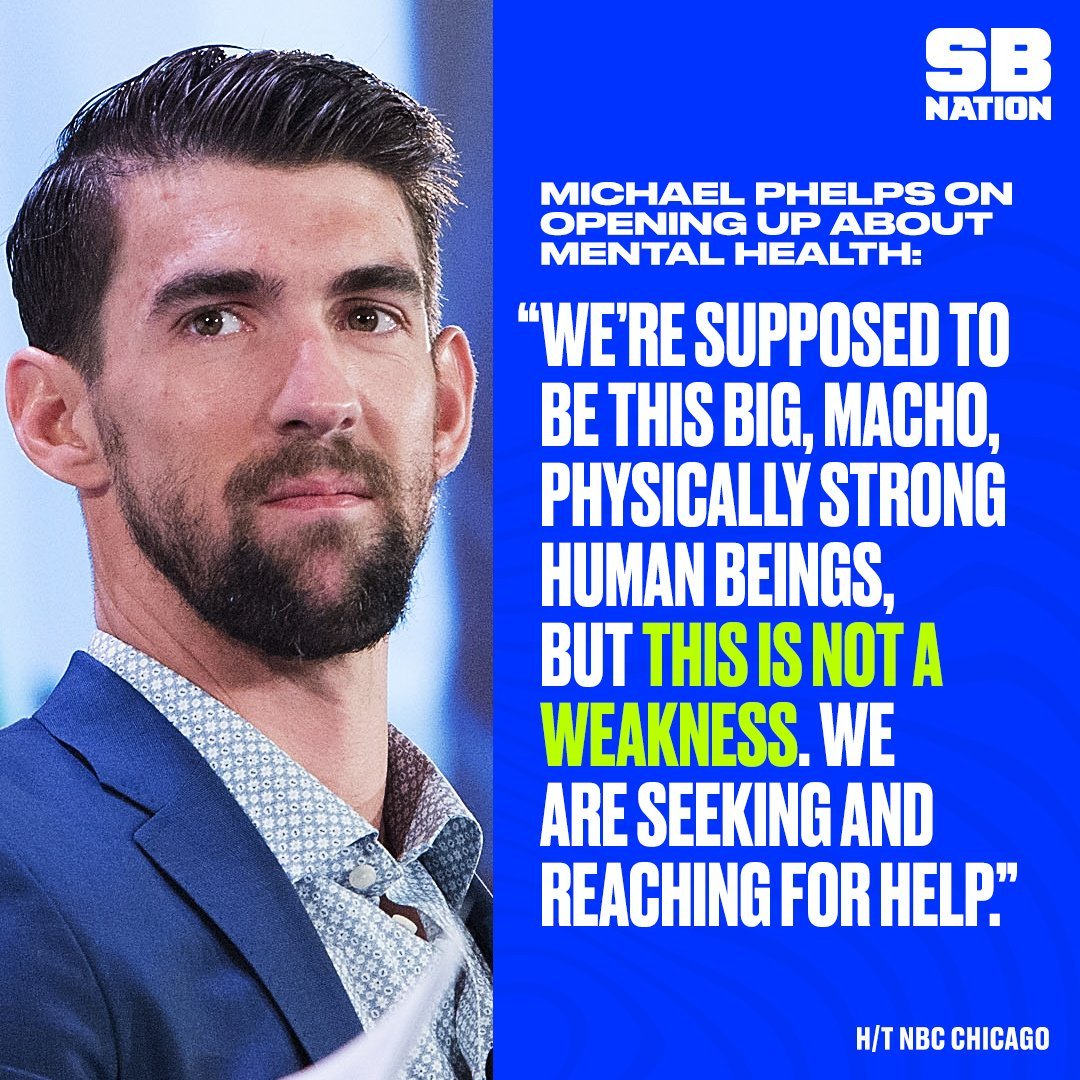Men and mental health
It’s time to break the stigma around men getting help for depression, anxiety, or other life challenges. In this article, we are going to shed light on why men are beginning to face their emotional struggles, and what mental health support can look like for men.
"Globally, on average 1 man dies by suicide, every minute of every day, yet men's mental health is still one of the most stigmatized topics with men's health."
- MOVEMENT FOR GLOBAL MENTAL HEALTH
While mental illness impacts both men and women, men are less likely to seek treatment due to societal stigma, reluctance to talk and downplaying, or not recognizing symptoms. Why is this, and is there anything we can do about it?
Boys are being harmed by outdated expectations
In late 2018, the American Psychological Association put forward a set of Guidelines for Psychological Practice with Boys and Men.
“Although boys and men, as a group, tend to hold privilege and power based on gender, they also demonstrate disproportionate rates of receiving harsh discipline (e.g., suspension and expulsion), academic challenges (e.g., dropping out of high school, particularly among [BIPOC] boys), mental health issues (e.g., completed suicide), physical health problems (e.g., cardiovascular problems), public health concerns (e.g., violence, substance abuse, incarceration, and early mortality), and a wide variety of other quality-of-life issues (e.g., relational problems, family well-being).”
“Additionally, many men do not seek help when they need it, and many report distinctive barriers to receiving gender-sensitive psychological treatment.”
In the past, answers often hinged on some version of “boys are just wired differently.” But it’s a myth that biology is destiny. It is far more about how boys are treated, and the pressure they face from a very young age, than about any innate nature.
How we treat boys not only shapes their behavior but actually builds their brains.
Child development theorists understood long ago that strong adults grow from receiving proper nurturing experiences and secure attachments. A child who feels ‘understood’ and ‘supported’ is better able to resist pressures and to recover from adversities. But the fear of “spoiling boys” or “undermining their masculinity” with fathers striving to teach their sons ‘how to be men’ is the ultimate irony of boyhood: in trying to strengthen them, boys can grow into men that felt weaker, less resilient, and isolated.
What are the ‘traditional’ expectations being put on men?
We don’t often stop to think about it, but our socially and culturally determined beliefs and norms around how boys should behave, have important influences on how we act.
Traditional masculinity norms:
1) Men should not be feminine (“Boys don’t cry”);
2) Men should aim to be respected for successful achievement (“The self-made man”);
3) Men should never show weakness (“Toughen-up”); and
4) Men should seek adventure and risk, accepting violence if necessary (“Be a man”).
Traditionally masculine roles:
1) Men should be the provider (“Men work, women stay home”);
2) Men should be the protector (“Men are fighters, soldiers and heroes”);
3) Men should be the leader (“Men are natural leaders”);
4) Men should be the boss (“The man of the house”).
It’s not that all traditional expectations of men are negative but it’s the negative consequences of suppressing emotions and masking distress, and masking our intuition, often starting early in life, that end up harming men. Combine that with the societal demands put on men — whether it's to be the protector, to be the provider, to respond to situations in certain ways, to prove yourself as a man — end up alienating many men from those who are best suited to support them; friends and family.
An “all or nothing” view / display of these traits may lead to harmful imbalances in a guy trying to live up to these expectations. Some examples include:
aggression - this can push loved ones away
showing no emotion or suppressing emotions - this makes it hard for others to know when you need support if you’re feeling down
hyper-competitiveness - Why the heck can’t a game just be a game?
a tendency towards or glorification of violence - Martin Scorsese films…
isolation - this can have a snowball effect, you avoid people for so long that they start avoiding you
low empathy - losing touch with how to relate to others
holding outdated beliefs about women - this often prevents meaningful relationships from happening, both friendships and romantic relationships
Society has glorified ‘unhealthy’ physical and emotional habits and behaviours in men. From working 24-7, to skimping on sleep, treating their bodies like machines, and not seeking preventive health care, men push themselves to their physical limits. Men are also more likely to engage in risky behaviours like heavy drinking, using tobacco and substance abuse. Most importantly, and sadly the old school way of treating guys discourages them from getting mental health support and treatment.
More men are asking for, and receiving support
Guys are starting to push back against the old beliefs that they should stay silent in their mental health struggles. This means that more men are becoming therapists themselves, and there is a push for more clinical studies regarding men’s mental health. This growing awareness of the importance of research means that better information is becoming available on how men can get the support they need and deserve when they are struggling with their mental health. One study was published regarding how depression symptoms can show up differently for men, specifically it often shows up in a more physical way.
Depression symptoms in men can look different
Fatigue
Physical aches or pains
Problems with sexual desire and performance
Headaches
Not being able to concentrate or remember details
Feeling very tired, not being able to sleep, or sleeping too much
Digestive problems & cramps
Overeating or not wanting to eat at all
Increase use of drugs and alcohol
Loss of interest in work, family, or once-pleasurable activities
Feeling sad, "empty," flat, or hopeless
Withdrawing from family and friends or becoming isolated
Like with anyone, there are specific factors that can contribute to mental health struggles in men
These factors include genetics, those with a history of depression in their family. Another factor is current environmental stressors such as money woes, grieving someone close to them, a recent breakup, career struggles, or any big change in life may trigger depression. A recent illness diagnosis can als be a contributing factor for men who may find themselves depressed. This could be a chronic illness where they have to change (or the illness itself makes changes to) their lifestyle such as diabetes, an advanced form of cancer, cardiovascular disease, or any progressive, degenerative disease. Depression can make these conditions worse, and sometimes depression can be a symptom of these illnesses. It’s also important to note that someone can have all three of these factors in their life, but not struggle with their mental health.
Does counselling for men work?
In a word, yes! Counselling works just as well for men as it does for women, or anyone else on the gender spectrum. Men also don’t necessarily need to see a male counsellor to get support. Although seeing a therapist who is a man can help some, for others they may not feel comfortable opening up to a guy, especially if they have faced ridicule or abuse from a man earlier on in life.
Guys, you don’t have to wait until you are on the brink of collapse before seeking help
If you’re feeling bad about a recent breakup, struggling with work performance, finding yourself not sleeping well, these are all valid reasons to seek the support of a therapist. Absolutely you should be reaching out for help if you’re feeling out of control or in an active crisis, but it doesn’t have to get that bad in order for you to deserve support. Self care can be as simple as recognizing that talking with someone on a regular basis could improve the quality of your life.
Famous men are speaking out about mental health, and that helps
While the push from mental health professionals and organizations to support men’s mental health struggles is important for driving awareness, education and support, celebrities, brands, media and pop culture ‘influencers’ are driving the momentum as well. From Dwayne (The Rock) Johnson, to Chance the Rapper, to Prince Harry and Michael Phelps… famous men have come out as mental health advocates are are having a wider reach and bringing the issue of men’s self care into the spotlight.
"I can safely say that losing my mum at the age of 12, and therefore shutting down all of my emotions for the last 20 years, has had a quite serious effect on not only my personal life but also my work...All of this grief that I had never processed started to come to the forefront and I was like, 'there is actually a lot of stuff here that I need to deal with.'"
- PRINCE HARRY
Guys, we can become our own mental health champions
As we push back against those old expectations of never showing when we struggle… we are able to achieve more connection with ourselves and each other. That includes openly experiencing a wide range of emotions, interdependence, vulnerability, cooperation, kindness and compassion. This allows us to share when we are in need, to ask for help, and in sharing our own struggles, this gives permission to others to reach out when they need a hand.
Speaking out when you need support is brave
We all have emotional ups and downs - ‘rough patches’ as we usually call them - changes, events or situations that put stress and strain on our day-to-day life. These are normal challenges. In most cases, with work, commitment, and a willingness to adapt - you can usually figure things out.
But what happens if these ‘rough patches’ turn into rough weeks, months or even years? What happens if you can’t work through or get past what is holding you back?
We’re here if you need help.
Therapy is a valuable tool that can help you to solve problems, set and achieve goals, or teach you new ways to track your emotions and keep yourself in check. It can help you to build the life, career, and relationship that you want. Does everybody need it? No. But if you are curious about working with a therapist, that curiosity is worth pursuing.
We know it takes a great amount of courage to examine your life and to decide that there are things you would like to change. And, it takes more courage to do something about it. We can help. We offer free consultations for anyone in Ontario considering individual or couples counselling, online at The Dot. We will go through any of your questions and concerns to help you decide whether online counselling is the right choice for you.
SOURCES
APA APA Guidelines for Psychological Practice with Boys and Men
Psych Central Healthy Masculinity: Should We Redefine What It Means to Be Masculine?
JAMA The Experience of Symptoms of Depression in Men vs Women
APA Men: A Different Depression
DOSOMETHING 12 Times Famous Men Got Real About Mental Health




